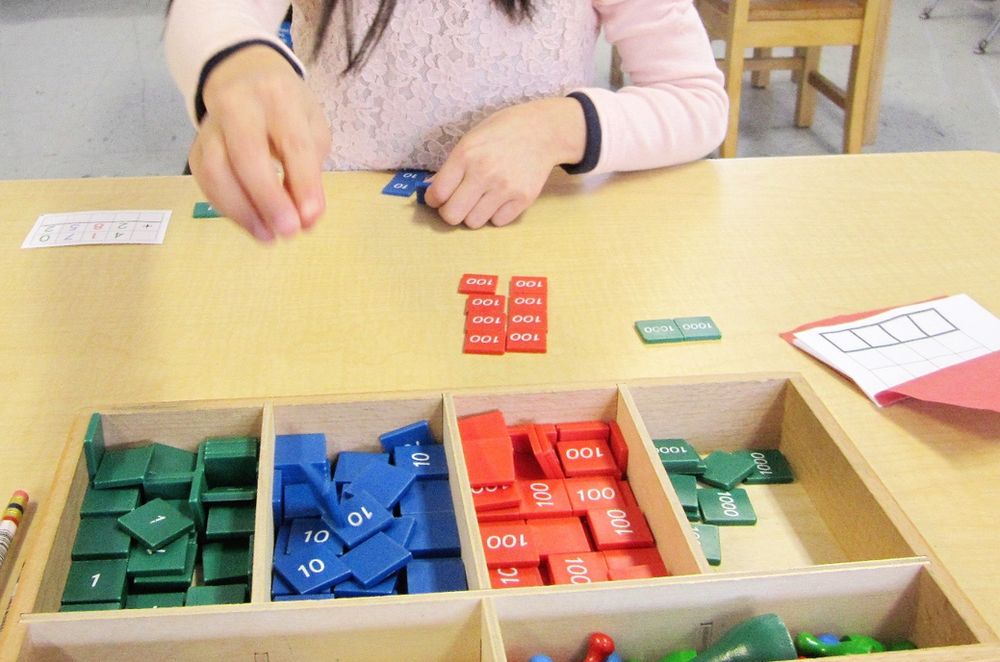
Throughout the prepared environment, the Montessori materials follow a careful sequence, leading children through experiences that become increasingly complicated and which build upon previous experiences, both in the content children are learning and in the development of the children themselves.
The Stamp Game is a great example of this. Early math materials, like the introduction to the Golden Beads, the Teen and Ten Boards, and the operations with the Golden Beads offer the child concrete manipulative for each quantity. When a child learns about the quantity of 10, he or she has 10 beads in hand. When learning about a hundred or a thousand, we offer concrete materials that can be touched and compared. For young children, whose minds require concrete experiences with concepts through the hands, these are necessary tools for the authentic internalization of the concepts we\'re teaching.
As children develop, though, they become increasingly able to think abstractly and to imagine concepts which are not in their hands. In the Montessori sequence, these more abstract lessons come after the child has had ample experience with the concrete counterparts and when the teacher can observe that a child is ready for more abstraction. The same operations of addition, multiplication, division and subtraction that the child has mastered with the concrete Golden Bead materials are presented in the more abstract Stamp Game. Instead of beads for each unit, ten, hundred and thousand, the Stamp Game includes identical tiles, color coded as the labels and marked, but otherwise interchangeable.
A child exploring operations with the Stamp Game must be able to discern between the tiles, remember place value, and remember the quantities despite the absence of concrete beads to support him or her. In other words, the child\'s cognitive development must be sufficient to allow for the retention and manipulation of imagined concepts. While this seems simple for adults, because we are already thinking abstractly and have been for most of our lives, abstract thinking is an emerging skill for most children in early childhood.
By providing opportunities for children to explore concepts abstractly, within an environment that still makes available all the same concrete materials, the Montessori materials help children to move through these important developmental phases at their own pace and with a strong foundation of understanding upon which to build future knowledge.
#Math #Abstraction #Curriculum #Primary #FirstPlane
